Boundless Discover: The Majesty of Adventure in Games
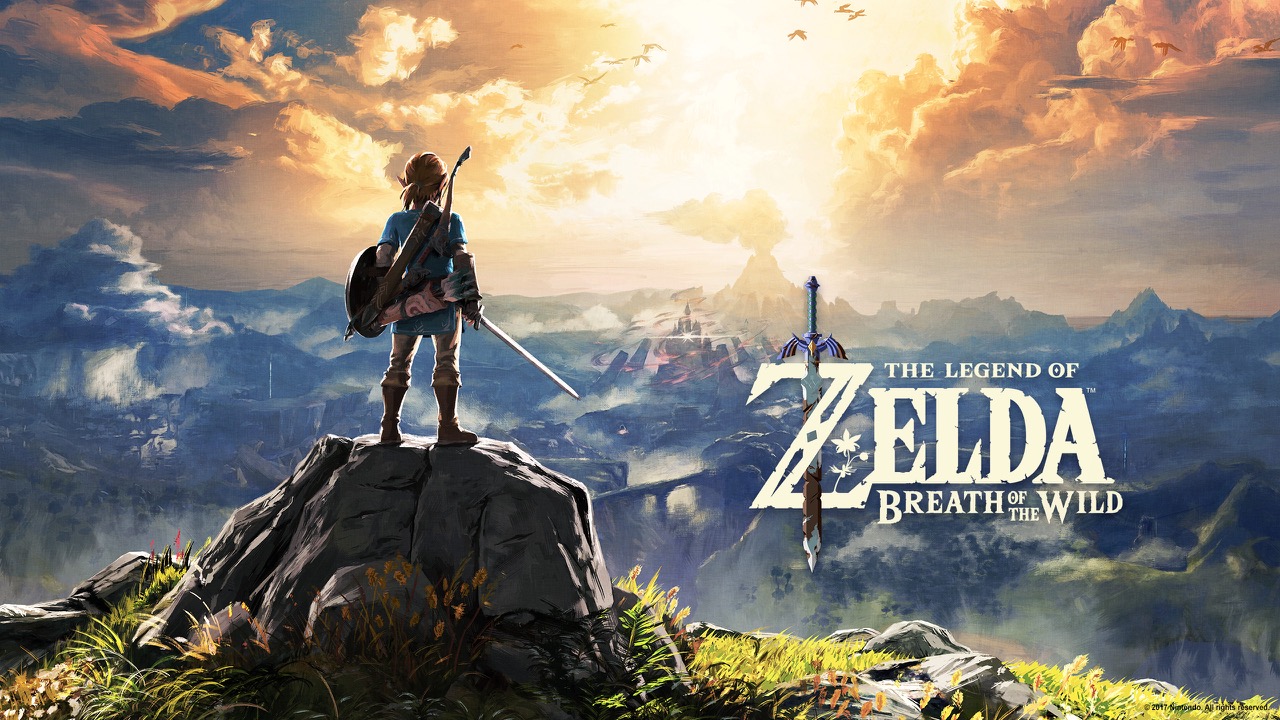
Games as a medium are about letting you enter a new world, step into the shoes of someone else, and see majestic things. They are different from other kinds of media like film or literature because you have to interact with them. A movie will keep playing, a book will keep going, no matter how you wish to proceed through it, but a game requires you to interact with it, and this interaction can change the course of the story.
More and more games are being built around open worlds and non-linear experiences. They let us as players take this sense of adventure that is so inherent to games and amplify it, and there is no better example than The Legend of Zelda: Breath of the Wild.
Paid Mods and Giving Creators Their Due
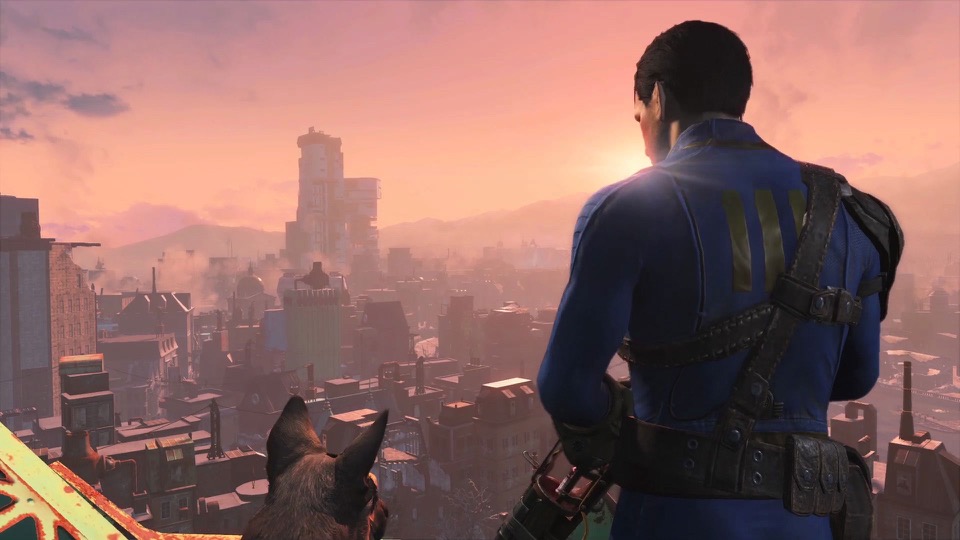
Bethesda just cannot catch a break. This year at the Electronic Entertainment Expo (E3), along with announcing yet another version of Skyrim, they stated that they would be implementing a system whereby they would be able to begin charging for select modifications for their games.
This has made a lot of people very angry, and been widely regarded as a bad move.
Almost immediately, the collective game community had a conniption, with resurfacing memories of the Valve paid mod debacle of 2015. Part of this is probably due to broad opinions about and distrust of Bethesda, but another part of it is due to a general unwillingness to pay for things within the games community. Especially things that were once available for free.
E3: Where Do Games Go From Here
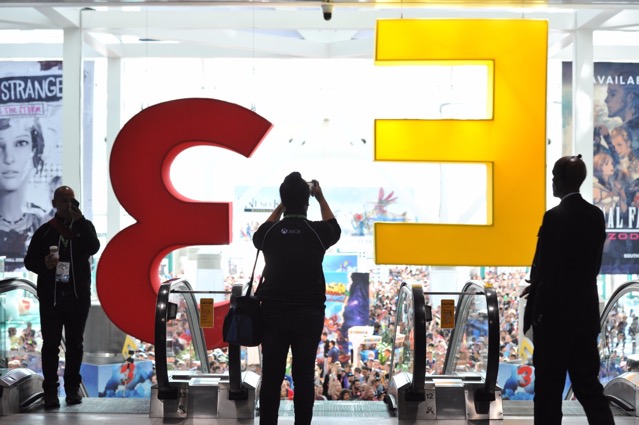
There is a certain attitude within the broader game community where we see ourselves as the scrappy underdog, an industry supported by impassioned and oft-misunderstood fans that is constantly maligned by the mainstream media in favor of more traditional entertainment industries. Where the only thing that keeps game companies afloat is die hard fans, and the worth of a game is measured by the community engagement online.
We’ve had this attitude for years, because for a long time, it was kind of deserved. Games were a hobby for silly kids and “nerds” socially undesirable and turning towards a digital medium for comfort.
But we’ve left that attitude behind a long time ago. Video games are about as mainstream as it can get, and playing games is no stranger of a hobby than watching sitcoms, cooking, or hiking.
Ludonarrative Dissonance
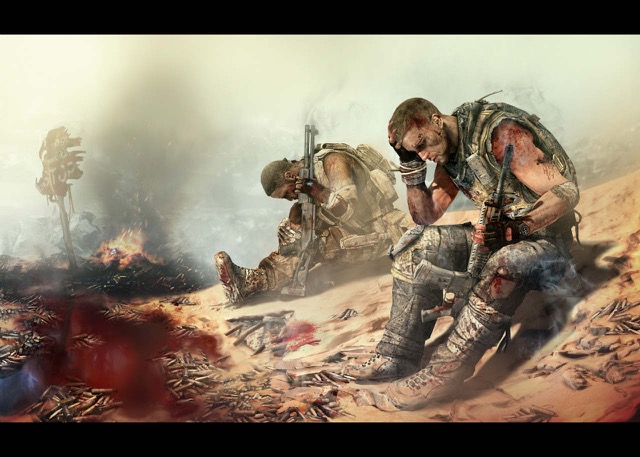
Games are a rather interesting medium to critique because of the crucial role that interactivity plays in how a story is interpreted. With a film or book, we are stuck in a single viewpoint and experience the story as if we were locked onto a roller coaster: tightly restricted and controlled. But in games, the player adds a crucial X-factor of randomness into the story that the creator has to try to control for.
To see all of the story, the player has to advance forward, completing a certain set of tasks, but sometimes the very function of the gameplay is at odds with the themes of the story being told. It is a familiar feeling within media, but games stand alone in that the layer is forced into “choosing” to do the tasks even if they don’t want to.
Atmosphere
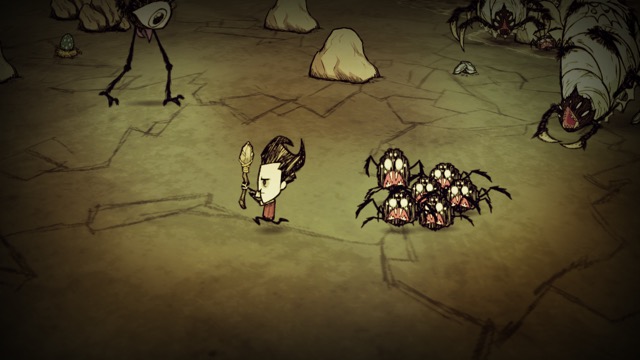
When we discuss games, especially those within the horror genre, this idea of “atmosphere” comes up again and again. I reference it rather frequently in my own writing, but one thing that we commonly neglect to do is actually say what we mean when we use it.
As it is right now, it exists as one of those, oft-used game review buzzwords, sitting alongside other repeat offenders: “visceral”, “moody”, “tight”, and countless others. We use it because it is easy, a simple way to get across a complex idea about the situations a game puts a player in, and the wide array of emotions that it evokes within you, and it would greatly benefit us all if we took the time to examine this sense to see what we really mean when we talk about atmosphere in a game.
Roguelikes and Story
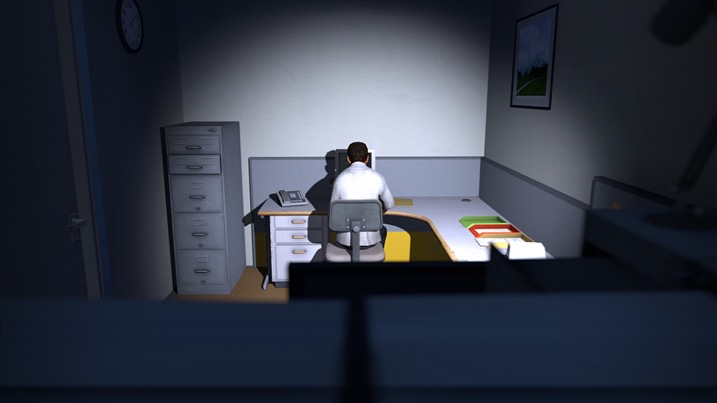
I’ve written about roguelikes before, but one thing about these games has always been limiting, at least in my opinion. The implementation of a story (or lack thereof) constrains these titles, prevents them from being something other than a casual endeavor to pick up and play when the mood strikes, and then drop after a particularly frustrating death. As a genre, it hinges on gameplay and mechanics so much because mastery and its pursuit is what keeps players coming back.
The idea of “grokking”, of not only understanding the mechanics of the game, but absorbing them enough that it enables you to look at the game differently, is the bread and butter of the Roguelike/lite genre. Sure you want to reach the end of the dungeon and fight the last boss, but even after that, you will endlessly chase the perfect run, the platonic ideal of what a playthrough could be, where everything comes together just right, with all of the correct pickups and weapons to make playing a breeze.
Bethesda's Review Policy
Much has already been said about Bethesda’s decision last year to stop sending out early review copies of their games to let “everyone, including those in the media, experience our games at the same time.” It is bad for many people, like those behind large websites, but most importantly it affects the consumers and how much information they have when they go to the store to pick out a product. It does actually benefit one other group besides Bethesda: small sites like ours that would never receive these copies in the first place. I’m not a fan of this policy by any means, but it allows me to sit on the same playing field as a writer for IGN, Polygon, Kotaku, or others.
When Dishonored 2 came out, I got it the same day that everyone else did. I was able to play through it twice that weekend, and four days later I published my review. I managed to beat a lot of major publications to press (due in part to my ability to focus on one review instead of many things at once), and while being able to do this did benefit our site, letting us see a tangible traffic boost from it, it had no way for me to help those people that wanted to buy the game on launch day.
We don’t get many pre-release copies of games at this point. Most of our reviews come one to two weeks after a game has launched, and are aimed at the smaller group of players who are waiting to buy a game. But a large portion of a game’s sales happen launch or in the week following, and we cannot help these people. Traditionally, this is where larger outlets have been able to come in with Day One or pre-release reviews based off of early copies provided by the publisher. This lets Day One purchasers make informed decisions about how to spend their money and if the new game is worth it. Read More…
Living Life Down the Barrel of a Gun
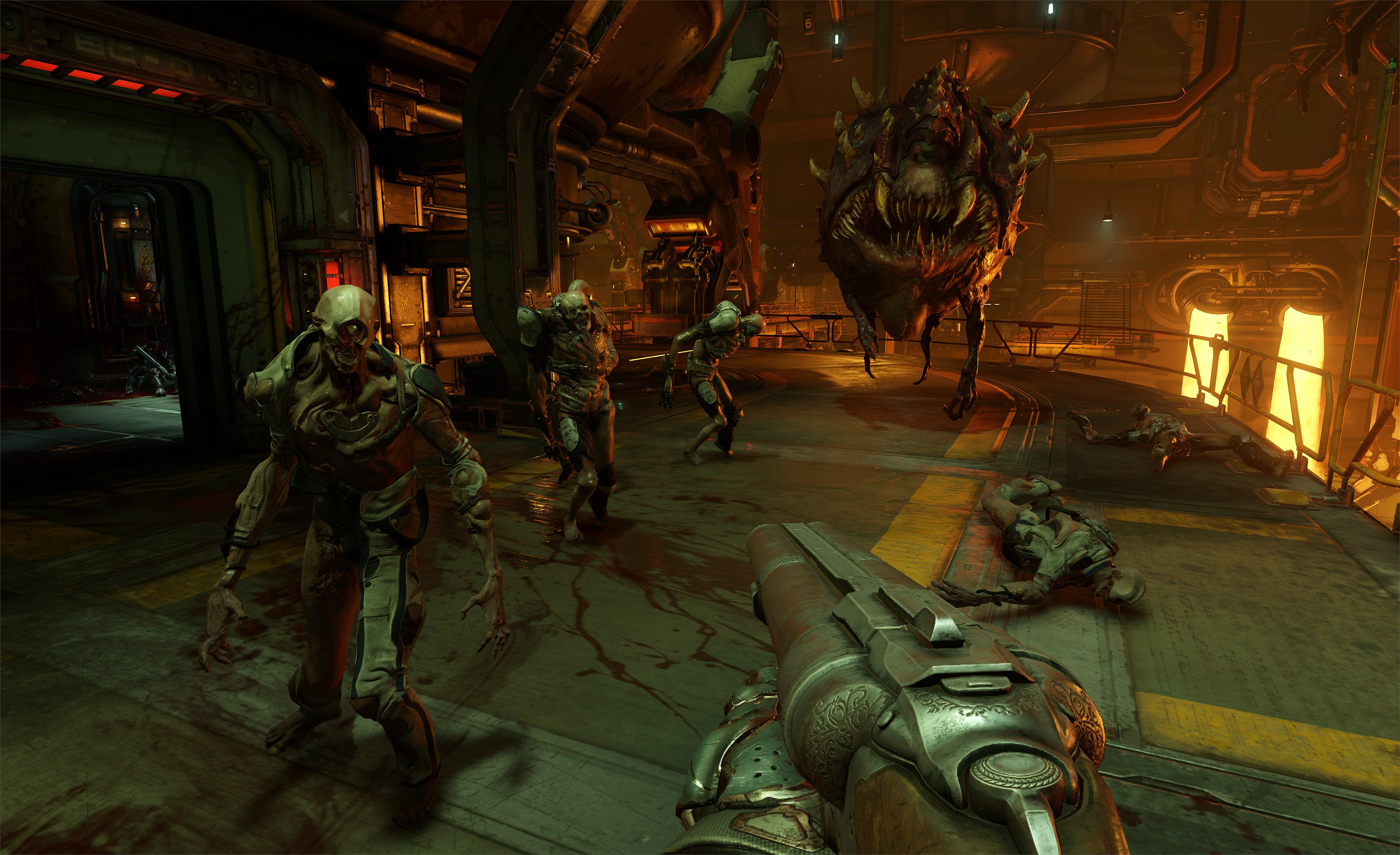
For all of the broad range of experiences that games can offer to us, the actual ways in which we are allowed to interact with them is rather limited. Most game screens look remarkably similar from a UI point of view. There is some sort of health bar, possibly a map or objective indicator in one corner, maybe a crosshair in the center of the screen, but invariably, the bottom right corner of the screen is almost always taken up by a gun. There are a few games that don’t follow this, but in the mainstream, first-person games that don’t shove a gun into your hands are the vast minority. And if your hands are filled with a gun, they have a knife, or a sword, or a bow, your weapon is offscreen, waiting to be pulled up with a single button press, aching to strike out at someone.
Twitch, Youtube, and "New Media"
The online landscape has shifted drastically over the course of the last five years. Websites and blogs used to be king, with dedicated reader bases coming back day after day to read the newest posts. There was a golden period of growth where anyone could make a website, and if they were dedicated, it would probably do pretty well. Coverage of games was done extensively through written articles, blog posts, and reviews, and there was a stable, if slightly adversarial, relationship between these companies and the companies that made games. Sites would get early review copies of games, access to developers for interviews, or in-depth press kits to help prepare coverage. In return, websites agreed to not post coverage of these titles until an agreed upon date. An equilibrium was reached.
Then YouTube came along and changed things. By virtue of its audience, content creators on YouTube relied on heavily edited videos, showing only the most exciting moments of whatever they were talking about. The massive Let’s Play community grouped around different games, and audiences had truly immense amounts of content at their fingertips. Search the name of the game, and they can find dozens of highly edited, exciting videos making it look to be fun, or small communities of super fans religiously playing and dissecting the game for years afterwards. You can see it with Counter Strike, or League of Legends, or DOTA, or Overwatch.
Companies noticed, and they took advantage of it. Many of these videos bordered on advertisements already in how they catered to audiences to draw them and in keep them interested. YouTube content creators live and die by audience retention, so they want to show viewers that they can come back day after day to consistently exciting and engaging content. Companies started reaching out to these channels, sending them free promotional materials or copies of the game, and any mention of this becomes positive advertising for the company. If someone receives a special Skyrim hat from Bethesda and shows it off on their YouTube channel because they feel special, it alters the appearance of Bethesda in the mind of consumers, changing them from a faceless corporate entity into an attentive and caring company that looks after its fans. They don’t have to ask for positive press from the creators, because any mention of them is good.
Compare this to the way in which video game websites handle the same situation. People don’t want to read an article about a special Skyrim hat that the author got from Bethesda, because it reads like an advertisement. Swag, or promotional materials, have been a part of the games industry, and indeed many others, for a long time. But unless the readers can get the exact same item, they don’t care. They view the pieces published by the website to be the statements of that website, regardless of who wrote them. There is less of a connection between the reader and the writer in most cases, and with this personal connection lost, appeals to the consumers work differently. Websites (outside of fan websites) don’t care about swag, because the audience doesn’t care about swag.
As YouTube has gotten larger, smaller content creators have slowly been getting crowded out. The platform enormously favors those with the time and the budget to produce consistent, daily, high quality, ten-minute plus videos, and the number of channels that can do this is low, in the grand scheme of things. Combine this with the too stringent DMCA policies that make it much too easy for a video to be taken down or removed from monetization, and many creators have been forced to diversify.
Twitch was there to pick up the pieces. Communities are only reinforced on Twitch, which shows categorizes livestreams by what games are being played while highlighting high profile streamers. However, on Twitch, channels did not have the benefit of editing to support their content, and personality reigned supreme. Tight knit communities form around streamers as they interact with their audience every single day to the point where a relationship is built. And companies have taken advantage of this. If a streamer is allowed to stream a game early, they are given a sense of exclusivity, and an implicit recommendation of the game from them to their fans. Anything that the company does for the streamer, from joining them on stream to sending them packages of promotional material, brings that company into the community.
There is nothing wrong with marketing or advertisement. It is how content creators can survive, and it is an integral part of the development and release of a game. It is a very necessary force. Print and online media have a whole host of ethical questions relating to companies that are being covered, ostensibly impartially, while these outlets are simultaneously running advertisements for these games. It’s a conflict of interest, and one that needs to be tackled and disclosed.
The issue with marketing comes when it stops appearing as marketing, when companies are manipulating fans and creators into giving them good press without revealing it, when content creators are being paid to create promotional videos without disclosing these facts, when the influence cannot be seen.
So where does that leave sites like ours, sites that don’t exactly fit into any of these molds? How do they survive? Do they attempt to extend their reach, diversify into different areas, start advertising the products that they are covering, or do they hunker down in their niche, trying to carve out a spot? The second is, without a doubt, more difficult. Staying truly independent is a challenge that all websites will face, and whether or not to stay that way is a question that every site will have to answer at some point during its lifespan. It is a question that we struggle with every day, and it is one that we eventually hope to answer.
____________________________________________

Tom has been writing about media since he was a senior in high school. He likes long walks on the beach, dark liquor, and when characters reload guns in action movies.
You Might Also Like:
Situational Invincibility and How it is Ruining Action MoviesExpectations vs Reality
What is Death of the Critic?
_____________________________________________
Sequels and Reviews
Earlier this week, we publish an article about sequels and how they are viewed in relation to their preceding works, and we wanted to take the time to clarify our position on how we address this concern when writing a review for a sequel. While we do our best to look at each work on its own merits, we cannot discount significant advances or steps back compared to other works within the same franchise. Read More…
Updates and Reviews
When we are reviewing a game, we have a unique issue that we don’t encounter with any other type of media. When a game launches, rarely will it stay in the exact same state over the coming days, weeks, months, or even years that it will be in the public. It will be updated and changed over time. Sometimes these updates are small: balance tweaks to multiplayer, text fixes, or subtle adjustments that no one will ever really see. But on the other hand, some alter graphics, story, gameplay, or more. At the root is this idea: patches are fixing something wrong with the game, no matter how big it may be. So how do we deal with this as reviewers. Read More…
Humor in Games
Humor is really hard to nail in games. Its either hit or miss, and when it misses, it can be bad. There are a few games that manage to absolutely nail it (Day of the Tentacle, I’m looking at you) but so many more just absolutely flop, and in doing so, manage to pull you out of the experience entirely.
In the last month I’ve played two big games that have been really bad about it. Ghost Recon: Wildlands and Mass Effect: Andromeda, which both tried to work semi-edgy humor in alongside their more serious stories to varying levels of success. Every time I heard one of these bad jokes, it pulled me out, actively reminding me that I was playing games, poorly written ones at that. Read More…
The Uncanny Valley
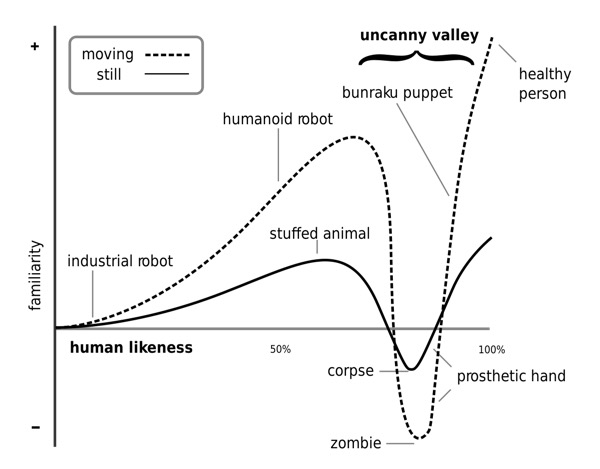
Mass Effect: Andromeda has been catching a lot of flak for its facial animations in the past few days, and by all rights it should be. They are off in a fundamental way that just makes them creepy. For the most part they are ok, but for a few characters (like lead Sarah Ryder) the animation quality is simply terrible. Any conversations about animations eventually drift into discussions about the uncanny valley. But what exactly is the uncanny valley and how does it affect animation, both in video games and otherwise?
The Captivating Simplicity of Idle Games
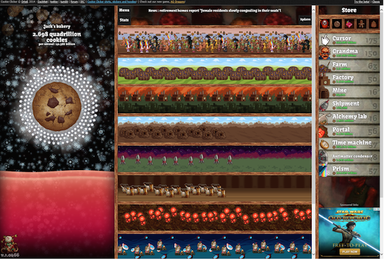
Games are built around feedback loops, obscured behind complex systems and mechanics, designed to draw us in and keep us there. We want to play the games so we can level up, become stronger, defeat new enemies, and get more and better loot. We play to get better and more efficient at playing, and in the last few years a new genre of games has stripped away this veneer and laid the inner workings bare for us to explore.
Ghost Recon: Wildlands - First Impressions
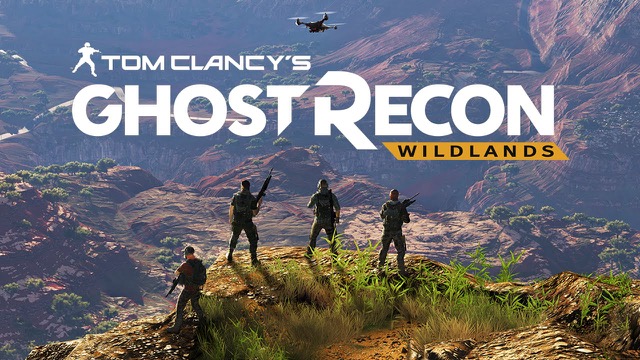
The beta has ended and in one short week Ghost Recon: Wildlands will be in everyone’s hands. So we sat down this weekend and tore through all of the content that the beta had to offer, both solo, and together in co-op. There was a huge amountof content to be found, and more than a few baffling decisions made. I don’t know if it feels like a Ghost Recon game, but it was damn fun. You can clearly see the influence that other open world games have had on its design. It’s an amalgamation of different ideas and tones that come together surprisingly well.
Loot Boxes
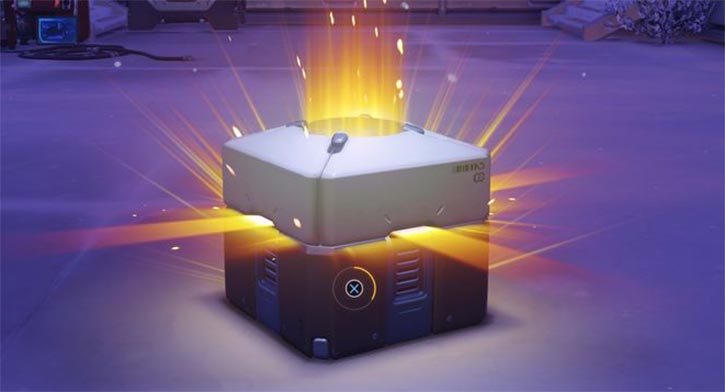
It’s notable now when a game doesn’t try to incorporate some form of micro transactions into their multiplayer modes to extend their revenue streams out for as long as possible. This speaks to an attitude where companies are competing to be the single game that players buy, keeping them in their ecosystem from as long as possible, and they’ve taken many lessons from the massively popular free-to-play mobile games that dominate the handheld marketplace. But there is a juggernaut that many people ignore. Valve’s moves towards long-term monetization of their stable of multiplayer games has changed the video game industry tremendously, adding a virtual slot machine mechanic to most large multiplayer games that come out. While the gaming community has poked fun at the “hat simulators” for years, we have seemingly ignored the way the crate and key mechanics of Valve games has created this landscape.
Super Mario Odyssey
< Super Mario Odyssey continues to baffle me. I don’t always fully understand the decisions that Nintendo makes, but somehow they generally work out for them. So when they released a trailer for the new Mario game for the next real generation of Nintendo consoles, I was actually excited in a way that I don’t usually get about Nintendo products. This is how we got Mario 64 and Galaxy, and the entirely-less-cool Sunshine. New Nintendo consoles ideally drive innovation in gameplay and graphics, so the first real new 3D Mario in years enticed me. Read More…
Gun Porn - Our Fascination with the Firearm
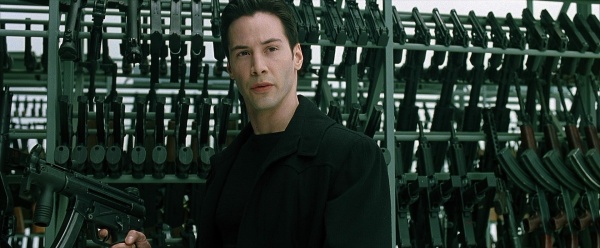
We love guns. Big and small. As long as it goes bang, we want to be able to sit and watch. Guns are ingrained in the American culture and they fill our media to the brim. It is hard to play a game or go to the movie theater without seeing a few of them. It has gotten to the point where the depiction of guns in movie and games crosses the boundary into the real world. You can see it in gunstores across the country, where teenagers stare at racks of rifles and pistols, lusting after the high-tech weaponry like a dog with a bone.
Scalebound and Platinum
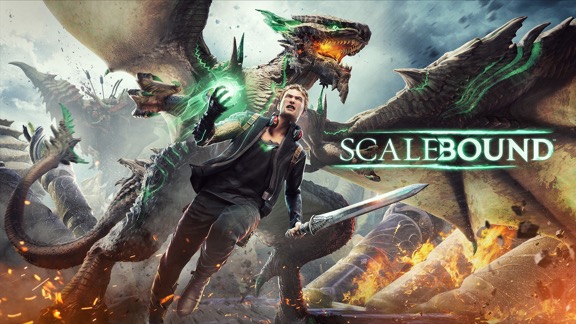
As many of you already know, a few weeks ago, Microsoft cancelled Scalebound, a title that at first had me united until its disastrous E3 showing this last year that made the game look like the worst kind of generic action, calling back unfortunate memories of Lost Planet as I watched. I had a moment after the announcement of the cancellation where I realized something. The Platinum Games name doesn’t really mean much to me anymore. And of course I’ll offer this disclaimer that we haven’t yet seen Nier: Automata and I truly hope that it blows me out of the water and makes this whole post worthless.
Violence
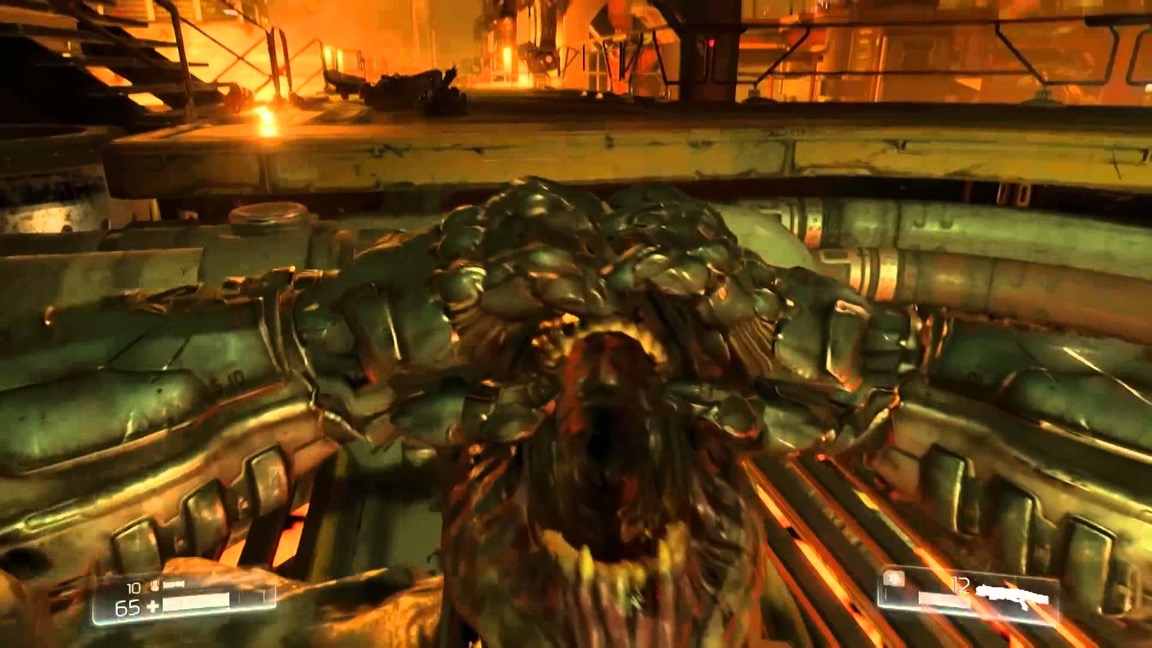
It is dark outside and a pair of headphones wrap around my head. I can’t hear my family, but I can see them standing next to me. On screen, I watch as my gloved fingers sink into the top of a demon’s skull and split it in half like an apple. My brother laughs, my mother gasps. I had gotten him DOOM for Christmas, and he insisted that I try it out on his new TV. My dad used to play the original with us when we were kids until our mom made him stop after one of us got too enthusiastic about the usage of a chainsaw.
Politics of Play - Games with an Agenda
Video games can be a powerful tool. They are unique in media in that they allow you to directly interact with the text in a way quite unlike anything else. And as time goes on, we are seeing games being leveraged in entirely different ways than we might have imagined when we first got our hands on the text adventures of the 1980’s. Instead of trying to make a game “fun”, creators are making games with messages. By allowing players to interact with the work in a meaningful way, the message carries so much more impact. Read More…
Dark Souls Without Difficulty
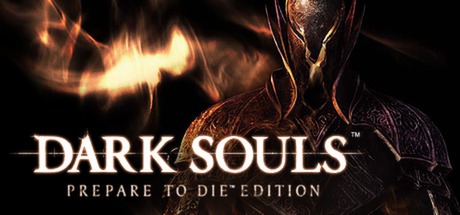
I love the Souls series. Over the years I’ve put a lot of hours into them and died a countless number of times, mostly by rolling off of cliffs. There is a lot to be praised about the game and the design, but somehow the conversation always centers on how difficult it is and how much you’ll die. It speaks to a certain attitude within the gaming community that praises “hardcore” games and decries “casual gamers.” Difficulty is king to many people and for that reason, the Souls series is frequently praised. If you can’t handle it, you just need to “get good” and deal with it. But what if you had to convince someone to play Dark Souls without ever mentioning its difficulty? How would that change our conversation about the game?
Dying to Win - Death as a Gameplay Mechanic
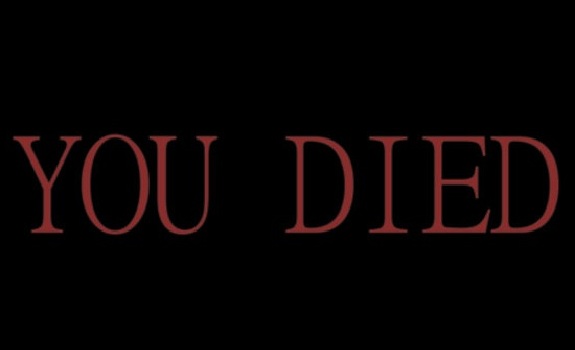
If you’ve been playing games for any period of time, you’ve likely died a lot. You’ve thrown yourself against the video game meat grinder and come out the other side. There are games almost built around the idea of death as a crucial part of the game and players treat their completion like a badge of honor. Dark Souls: Prepare to Die, Rogue Legacy, and so many more take death and turn it from an inconvenience into a mechanic. But on the other side you have games like Super Meat Boy or Bioshock, which do their best to make death as little of an inconvenience as possible, and making it a fun part of the game.
Going Back To Call of Duty
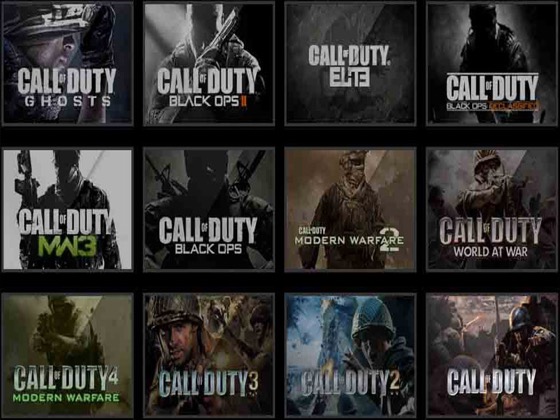
It has been interesting to see where Call of Duty has ended up. I came to the franchise back in 2005 with Call of Duty 2: The Big Red One and got hooked when I first picked up the original Modern Warfare. Call of Duty 4 changed the face of the modern shooter, and when it was announced that it was being re-released with this years integration of the franchise, it felt like it was time to go back and see where modern Call of Duty games began, and where they began to go off the rails. I have not been drawn into the last few titles and a part of me missed the simplicity of the older titles. While they kept the fast-paced, frenetic action, they shortened the feedback loop and added in so many different systems that started to overwhelm me. There was always something going on: a different medal, award, or unlock. It got to the point where there was always something flashing across my screen, and it started to lose its attraction.
Microtransactions
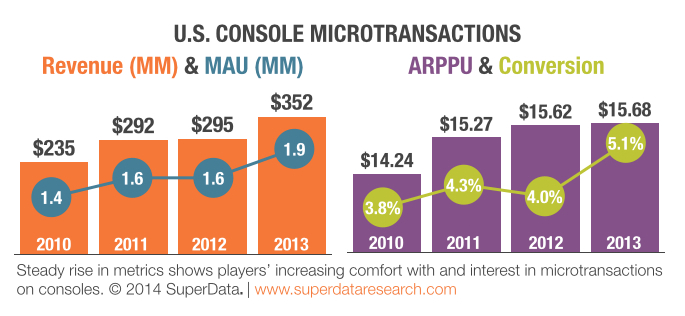
For years, we have heard that the future of gaming is not with big AAA console releases. Since the widespread adoption of the smartphone as the de facto standard, the message has been that the mobile platform is the future. Small, cheap/free games that subsidize themselves through ads and in-app purchases. I scoffed at this idea initially, like many of you reading. How could Clash of Clans replace Call of Duty? But in this new console generation, you can watch as games trend towards these ideas. This does not match the vision of a future in which consoles no longer exists, and you life revolves around your phone, but it also doesn’t match what we imagined when we were kids playing Nintendo games. It has raised interesting questions about what makes a game, what a game includes, and what place micro transactions have in our hobby.
Who is the Next Enemy?
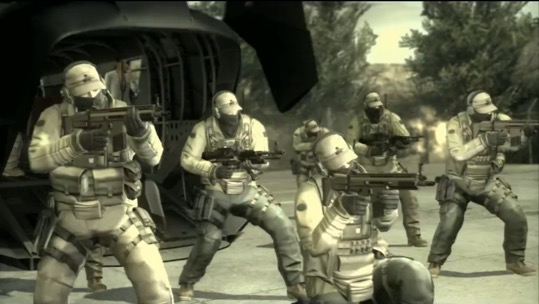
lt is no secret that video games have you kill a lot of people. If you have played them with any sense of regularity, chances are that by now you have gunned down tens of thousands of monsters, terrorists, and soldiers across the ages. Every few years, games go through distinct phases where enemies all seem to be the same type. We’ve had the World War 2 era, where Nazis were the cannon fodder of choice. Before that we had monsters and mutated freaks. Russian and Chinese soldiers were the flavor of the month for a while, and the zombie craze is still ongoing. Generic terrorists are always a good fallback, and it’s no surprise when a popular game relies on one of these clichés for their antagonists. But as our world becomes more complex and our threats become more fluid it has raised interesting questions for players and developers, and it asks us: Who is the next target?
How Much Do You Need To Play?
I’ve been playing games for a very long time. I’ve been reviewing them for years. And over this time, I’ve noticed a trend towards longer and longer games. As a player, this is a really exciting trend. I love the push towards a more intense, story-focused experience for a player. But at the same time, it is beginning to get a little out of hand. I’ve written about this before in regards to every games desire to have an expansive open world. It seems like every game wants to be an epic, 40 plus hour-long experience, following the chosen character as they save the world/galaxy/universe.
This raises an interesting question for reviewers. How much do we need to play? Read More…
A Case Against Open World Games
It’s not often that I argue against adding features. It’s counter intuitive. It goes against everything I normally stand for, and everything everyone else normally stands for. We want more. We want our dollars and cents to be giving us a tangible experience, as massive as possible. We want the cost benefit analysis to be as positive for us as possible. To be able to milk every single last hour and minute out of a game. Read More…
Left 4 Dead - A Love Story
By now, every so-called "Hardcore Gamer" knows where the modern video game came from. Everything we know was spawned from the cultural phenomenon known as Dungeons and Dragons. It introduced us to the concept of the modern role-playing game. It gave us the idea of a persistent character and dungeon crawling epics. From there, the video game scene exploded. CRPGs flourished until the advent of the video arcades, which popularized the quarter crunching games of the eighties and nineties. Read More…
Skyrim and Individual Experiences
I want to talk about Skyrim. Well, I guess not just Skyrim, but I recently dove back into the game and it really started to make me think. When I first played the game back in 2011, I had an experience similar to many others who picked up the game. I ran through the giant world, stealing everything I could lay my hands on, murdering everything in sight, and grabbing every piece of loot I could find before finally putting it down, 200 some odd hours later without ever having completed the title. Read More…
On The Act of Killing
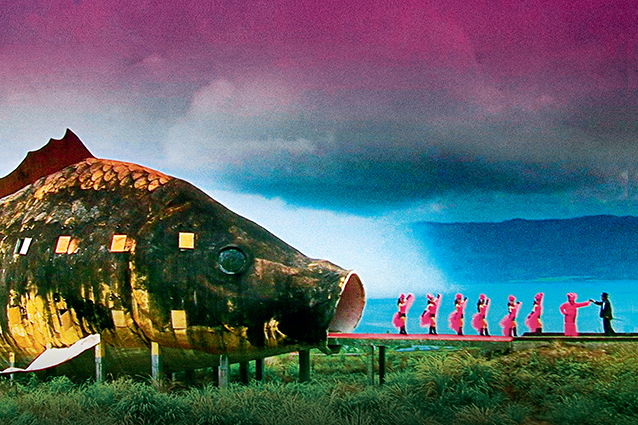
Death is one of the most significant events in our lives. It’s one of our only assurances. It is going to happen at some point. Whether you like it or not. Death will visit us, touching someone, somewhere, somehow. It’s an event that forever changes those who it touches. It has an impact that cannot be understated.
Let's Talk About Fallout 4
Let’s talk about Fallout 4. I’m a pretty big fan of the franchise, and while it might be sacrilege to some to mention, my favorite game of all time is Fallout 3. It really made me love games like none other, and it got me into this whole criticism thing. It’s the first game I ever marathoned, playing it for seven hours straight the first day I had it, as a weird thirteen-year-old sitting in my basement in front of my TV.
So when I heard that a sequel was coming out, I was a little bit excited, to say the least. From the announcement to the release I could barely contain myself, and when the day came I kicked my friends off of my TV so I could play my preloaded copy. And as I first dove into the game it was amazing. It controlled so much better, and I didn’t have to rely on the crutch of V.A.T.S to make my way through encounters anymore.
Read More…
Kentucky Route Zero
It’s hard to talk about video games without using references to games that have come before them. That’s why we have we call games “Roguelikes” or “Metroidvanias”. Because when we encounter a new experience, we look for ways we can relate it to something we are all familiar. Maybe it is an old game like Rogue, or a massively popular series like Metroid or Castlevania. But what do we do when we encounter a truly new experience? That is the question I found myself asking when I first picked up Kentucky Route Zero. While I could see elements of its predecessors within it, I found it hard to truly describe it to others outside of simply saying that it was different. Read More…